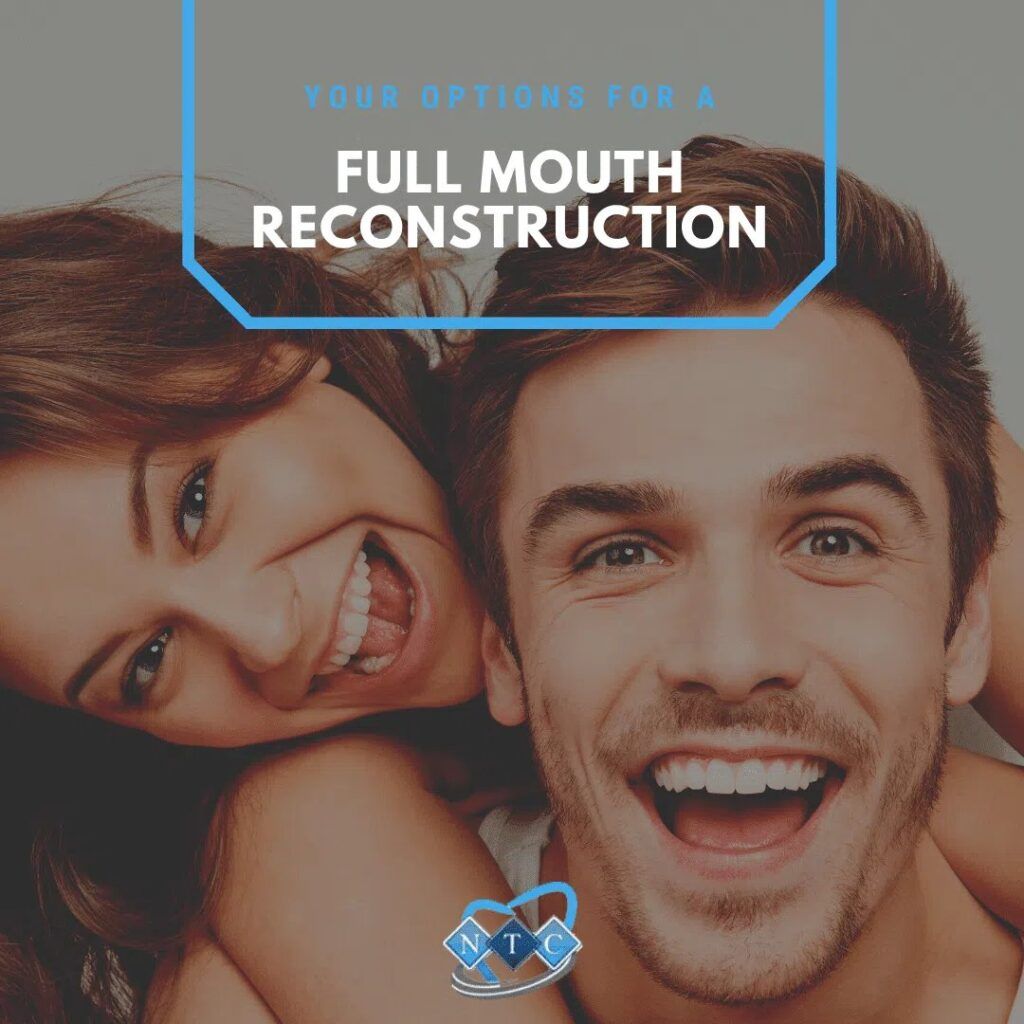When your mouth is missing teeth, it can be difficult to speak and eat. You may find that you are embarrassed in social situations or in public. With the arrival of the new year, why not make it a resolution to start the year smiling with a mouthful of new teeth? A full mouth reconstruction will put a smile back on your face and improve your quality of life. With implant-supported dentures, zygomatic implants, all-on-four implants, or fixed dentures there are various options available for a full mouth reconstruction. This blog post discusses each option so that you can make an informed decision about which one would work best for your needs.
Do I need a full mouth reconstruction?
If you are reading this, but are unsure as to whether you actually need a full mouth reconstruction, here are some of the most common signs that indicate you may benefit from a full mouth reconstruction:
- Difficulty chewing and/or speaking, especially with certain foods
- Inability to bite into food without cutting it up first due to having a lack of teeth or missing molars
- You have been wearing removable dentures for an extended period of time without success
- Your face has changed shape due to bone loss in the jaw
- You have gum disease or other oral health problems that need more than just a regular dental treatment plan
- You have teeth that are damaged, decayed, or missing
If you are experiencing any of these signs, it is time to consult with your local implant dentist about having a full mouth reconstruction.
Benefits of Dental Implants
No matter which option you choose, all the options offer you a range of benefits associated with dental implants. These benefits include:
- A secure, stable fit that feels like natural teeth
- No slipping or movement
- Reduced risk of bone resorption and facial changes
- Preservation of healthy jawbone
- Improved appearance and confidence
- Allows you to maintain a healthy diet
- Lasts 20+ years
If you are considering a full mouth reconstruction, be sure to discuss all your options with your dentist. They will be able to help you choose the treatment that is best for you.
The Various Options for a Full Mouth Reconstruction
Now that you know what constitutes the need for a full mouth reconstruction and understand the benefits of a full mouth reconstruction, let’s discuss the various options available.
Fixed Dentures
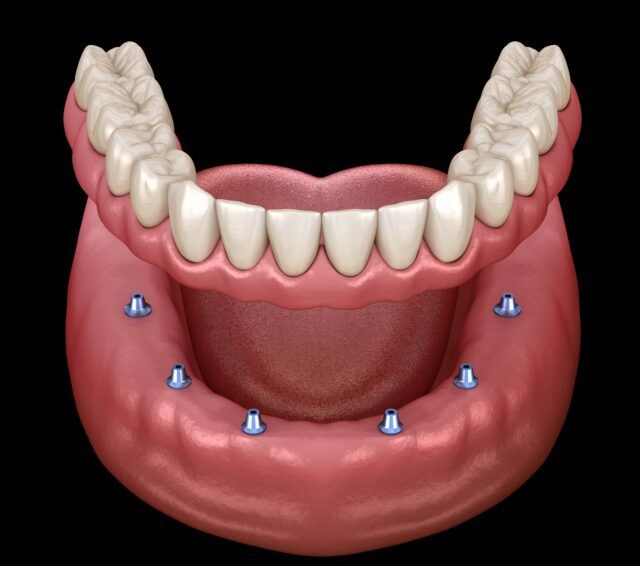
A traditional denture is composed of fake teeth on a resin base. The base is made to fit on top of the gums and is held in place by suction. A fixed denture, however, attaches to and is supported by dental implants. Additionally since the denture is held in place with dental implants, the upper denture does not cover the palate like a traditional denture.
To get a fixed denture, your implant dentist will first place anywhere from 4-8 dental implants into the jawbone. In some cases, bone grafting may also be used to improve the quality and quantity of bone in the jaw. Once the implants are healed (generally a period of several months), the denture will be attached to them. Unlike removable dentures, a fixed denture is not going to move around or come loose. This makes it a more stable option that feels more like natural teeth.
Zygomatic Implants
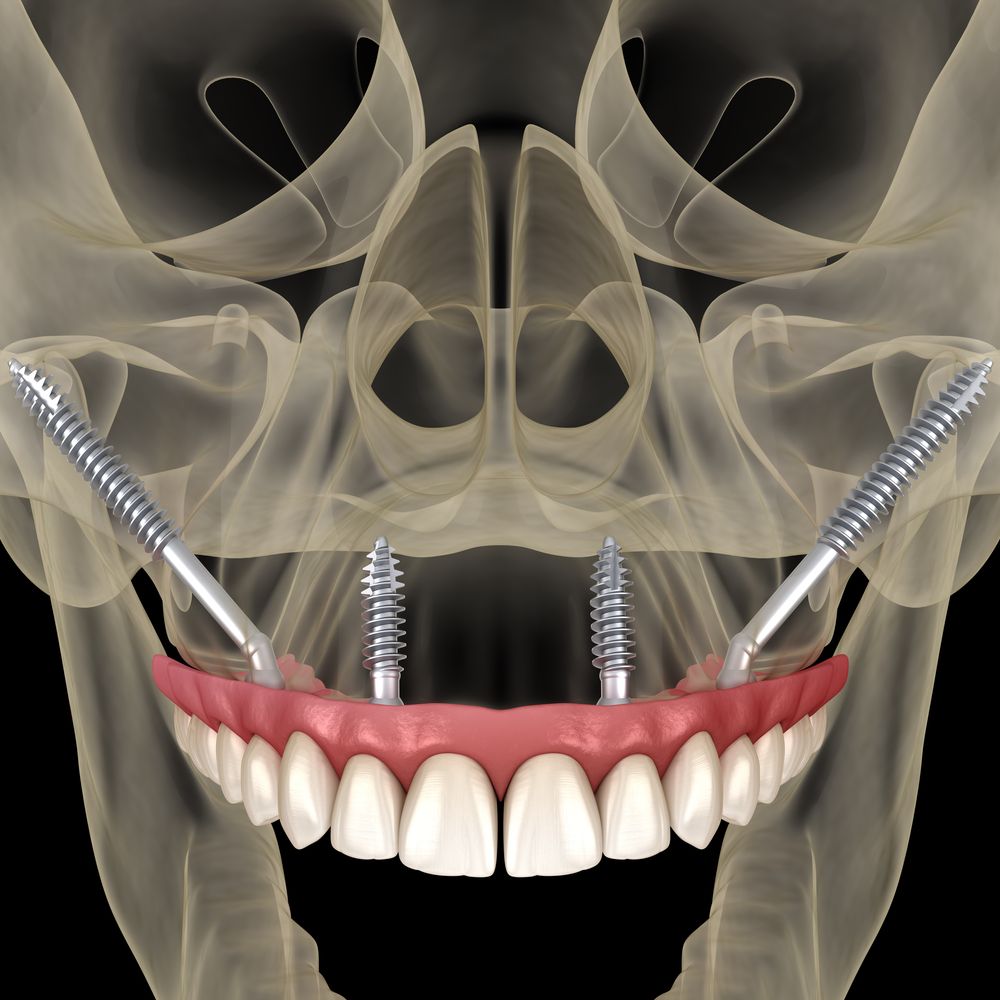
Zygomatic implants are elongated dental implants that are placed into the zygomatic bones (cheekbones), which are far denser than other facial bones. They are often used in cases where an individual does not have enough bone mass present in the upper jaw. While this would normally call for a sinus lift, using zygomatic implants eliminates the need for any bone grafting procedures. In doing so, they can shorten the overall treatment by 6-12 months.
Zygomatic implants are placed in the same way as traditional dental implants. The main difference, however, is that zygomatic implants are much longer and will pass through the jawbone and into the cheekbones. Zygomatic implants are placed near the upper bicuspid and are angled to avoid the sinuses. One zygomatic implant equals about 3-4 traditional implants. In most cases, 1-2 zygomatic implants are placed in coordination with 2-4 traditional implants. One the implants are placed, the fake teeth will be attached.
Implant-Supported Dentures
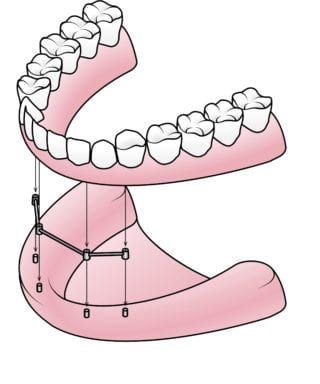
An implant-supported denture is an overdenture supported by implants in the upper and/or lower jaw. An overdenture is a removable set of fake teeth and gums, much like a traditional denture. The main difference between an overdenture and a traditional denture, however, is that an overdenture has special attachments on the bottom that allow it to be snapped onto dental implants in the mouth. This means that implant-supported dentures can be secured in the mouth, while still being removable.
The procedure for placing implant-supported dentures is similar to the procedure for placing traditional implants. However, implant-supported dentures can be placed using mini dental implants, which are smaller than traditional implants. This means that people with less bone mass can often still have implant-supported dentures placed. Since the implants are smaller, however, around 5-8 implants may need to be placed to support a full denture.
All-on-Four Implants
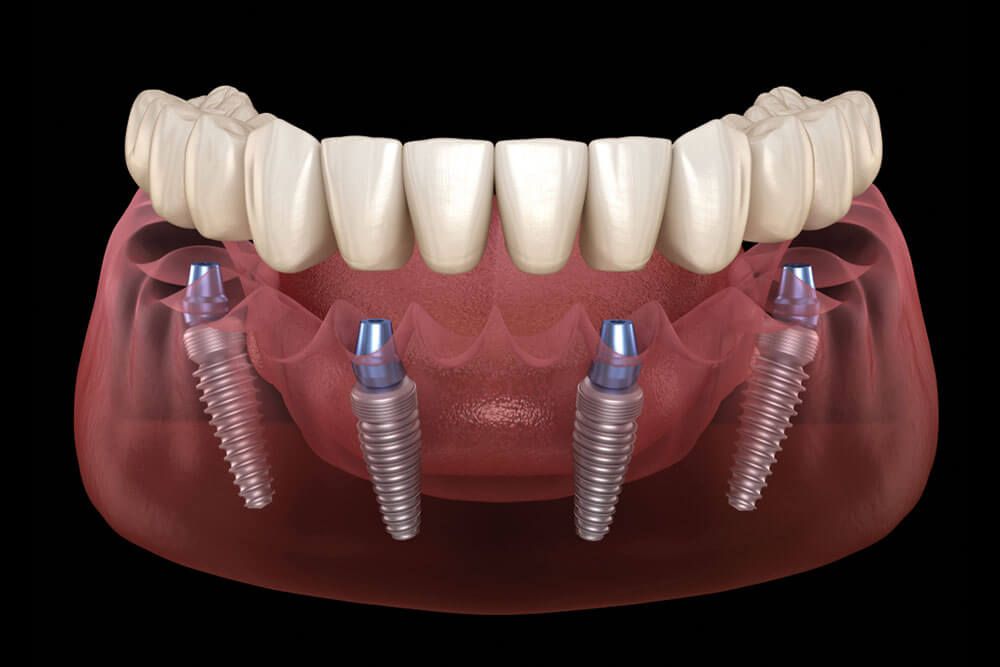
Another option is all-on-four implants, which is a treatment plan that uses four implants to secure a full set of replacement teeth onto the jawbone. Unlike traditional implants, the all-on-four procedure does not require bone grafting. This is because all-on-four implants are placed at an angle to maximize the amount of support provided by the jawbone. In cases where the jawbone alone is not strong enough, zygomatic implants can be used as part of the four implants.
The all-on-four procedure is similar to the traditional implant procedure, albeit only four implants are placed in each arch. Unlike traditional implants, however, the implants used for all-on-four are placed at an angle.
In Conclusion
If you are considering a full mouth reconstruction, be sure to consult with your local implant dentist to find out which treatment plan would be best for you. With so many options available, there is sure to be a treatment plan that will suit your needs and give you the smile you have always wanted.
Happy New Year! May your smile be as beautiful as your new teeth!

